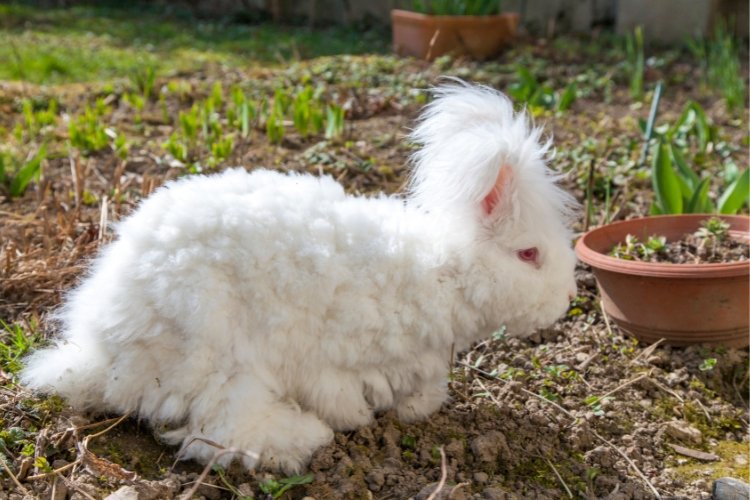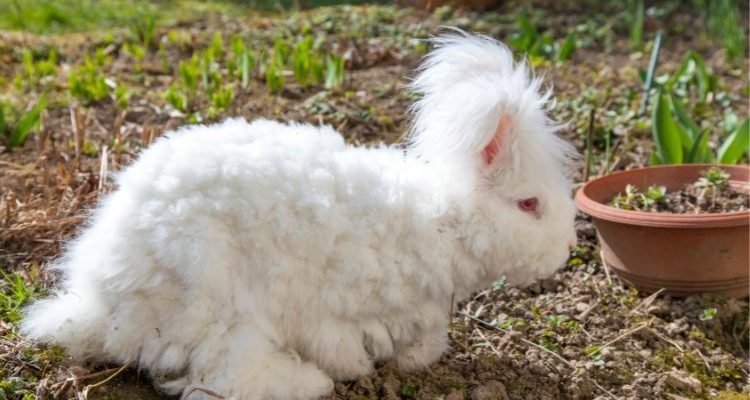
Much like picking out a car or a new phone, bringing home an English Angora rabbit requires some thought. They’re not just cute; they also have specific needs and characteristics. The more you know, the better prepared you’ll be for the joy—and occasional challenges—of rabbit ownership. So grab a cup of coffee, and let’s explore what it’s really like to care for these fluffy companions.
The Fluff Factor: What Makes Angoras Unique
If you’ve ever seen an English Angora rabbit, you know they’re stunning. Their long, silky fur looks like it belongs in a fairy tale. This breed is known for its striking appearance, but there’s more to them than just their looks. They have friendly personalities and enjoy companionship, making them great pets for families or individuals.
Their coat is a double-layered *wonder*, requiring regular grooming. Imagine having to brush your pet like grooming a show dog! This helps prevent matting and keeps their fur healthy. Plus, grooming can be a bonding experience. If you’re the type who enjoys grooming pets, this could be a delightful part of your routine.
However, that fluff comes with its own set of challenges, particularly when it comes to shedding. While all rabbits shed, English Angoras have a thicker coat, which means you’ll find fur everywhere. If you’re someone who hates sweeping up after pets, this could be a deal-breaker.
Temperament: Sweet and Social
The English Angora rabbit is renowned for its gentle nature. They’re typically friendly and sociable, often forming strong bonds with their human companions. Picture a soft, cuddly friend following you around the house when they’re not lounging in their favorite spot.
Their temperament makes them a good choice for families with children, though, as with any pet, supervision is essential. Kids must learn how to handle them gently to avoid stressing the rabbit or causing injury. Angoras usually enjoy attention and can even learn a few tricks, but it’s important to socialize them from a young age to ensure they’re comfortable around people.
On the flip side, if you’re looking for a pet that can entertain itself without much interaction, an English Angora might not fit the bill. They thrive on social interaction and can become lonely or bored if left alone for too long. So, be ready for some quality playtime and cuddle sessions!
Space and Environment Needs
Like all pets, English Angoras have specific space requirements. They need enough room to hop around and explore. A rabbit-proofed area or a large enclosure helps them feel safe while allowing for movement. Think of it as creating a mini rabbit kingdom where they can stretch their legs and feel at home.
While they can adapt to living indoors, they also enjoy some outdoor time. Always supervise them when they’re outside, as curious Angoras can find trouble quickly. Make sure their environment is safe from predators like cats or dogs and keep them away from toxic plants.
Another thing to remember is that these rabbits are sensitive to extreme temperatures. Hot weather can be hard on them, so providing a cool, shaded place is crucial. A cozy corner filled with hay and soft bedding will make them feel snug as a bug.
Grooming: Love from the Brush
Grooming is not just a luxury for English Angora rabbits; it’s a necessity. With their long, luxurious fur comes the responsibility of keeping it in tip-top shape. Regular brushing—ideally every few days—is essential to prevent mats and tangles.
You might think, *”Really? I have to brush my rabbit?”* Yes, you do! Just like you wouldn’t want to walk around with tangled hair, neither do they. Use a soft-bristle brush or a comb designed for long-haired pets to make it easier. Grooming can even be a calming activity for both you and your furry friend.
Keep in mind that during shedding season, or “blowing coat,” you may need to step up your grooming game. You’ll likely find fur everywhere, so be prepared to roll up your sleeves and tackle those fluff clouds!
Diet and Health: Feeding Your Fluffy Friend
Feeding an English Angora the right diet is key to keeping them healthy and happy. They need a balanced mix of hay, fresh vegetables, and high-quality rabbit pellets. Think of hay as the foundation of their diet—it’s crucial for their digestive health and helps keep their teeth in check.
You might be wondering, *”What vegetables can I give them?”* Leafy greens like romaine lettuce, kale, and parsley are excellent choices. But be careful! Some veggies can upset their stomachs, so always introduce new foods gradually.
Regular vet check-ups are also vital. English Angoras can be prone to certain health issues, including dental problems due to their unique teeth structure. Keeping up with veterinary care, vaccinations, and spaying or neutering will contribute to a long and happy life for your pet.
Cost and Commitment: Budgeting for Your New Pet
Owning an English Angora rabbit isn’t just about the initial purchase. You’ll want to consider the long-term costs associated with their care. While the purchase price can vary, it’s essential to factor in ongoing expenses like food, grooming supplies, toys, and vet bills.
Proper housing can also add to the cost. A spacious enclosure, health checks, and food supplies all accumulate over time. Plus, if you plan to get them spayed or neutered, that’s another cost to keep in mind.
If you’re looking at the big picture, ask yourself: *”Am I ready for this commitment?”* Caring for a pet is a long-term investment. English Angoras typically live for 7 to 12 years, so you’ll want to be sure that you’re ready to provide love and care for them throughout their lives.
Final Thoughts: Is an English Angora Right for You?
Ultimately, whether an English Angora rabbit is a good pet for you depends on your lifestyle, preferences, and ability to devote time and resources to their care. If you’re up for the fluffy challenges of grooming and the commitment of social interaction, you’ll find these rabbits to be wonderful companions.
On the other hand, if you prefer a low-maintenance pet, this breed might not be the best choice. They require attention, grooming, and a safe environment to thrive. Remember, bringing a pet into your life is a big decision, so take your time to consider if the sweet and fluffy English Angora is the right furry friend for you.
In the end, the joy and companionship they bring can be well worth the effort. So, whether you decide to leap into rabbit ownership or take a step back, remember that every pet deserves love and dedication.

